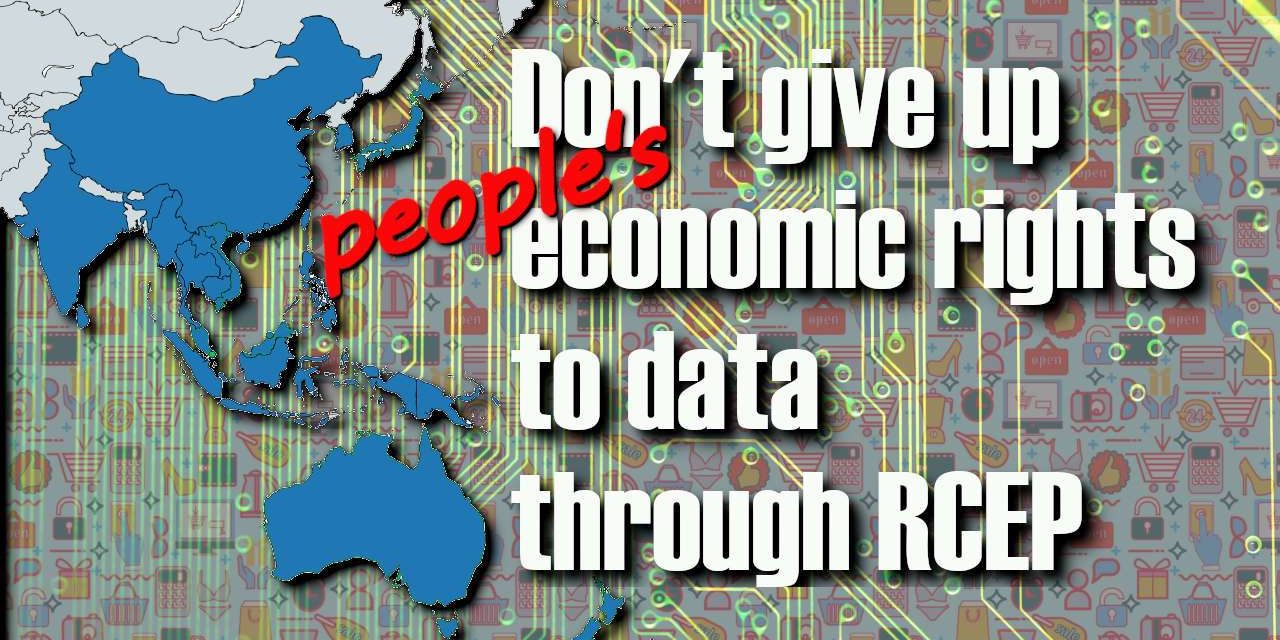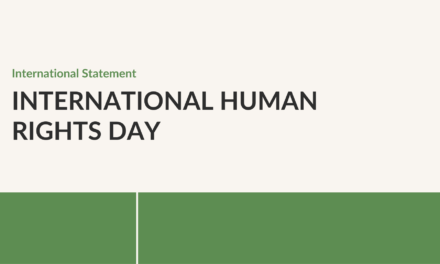[We feature this intervention made by IT for Change at the stakeholder consultation dduring the 25th round of negotiations for the Regional Comprehensive Economic Partnership, on 25th February, 2019. The intervention was made with the understanding that the RCEP chapter on e-commerce may include provisions that would mandate free cross-border flows of data (through proscriptions on data localisation that constrains the domestic policy space of ratifying governments ), restrict source code access, and enable market-led e-authentication and e-payments frameworks. The intervention was made to the Trade Negotiating Committee, and the Working Group on E-commerce, comprising all negotiating countries.]
The debate about e-commerce provisions in the RCEP is really a debate about data and the digital economy. Because of digital platforms that control the market ecosystem there are both disintermediation and new forms of intermediation in markets. For example, Amazon has the ability to procure directly from farmers, changing the roles and requirements for traders, and changing the entity that the farmer has to negotiate with.
In this platform economy, efficiencies accrue from the digital intelligence derived from data, Entire economies are being restructured, transforming supply chains both nationally and at a global level. Data, thus, is an economic resource, and it is important to recognise this.
Given that data is an economic resource, who data belongs to is a political economy question. Does it belong to the people who generate it through the course of their daily activities, and about whom the data is? Or does it belong to data collectors?
Before this question is answered, we cannot mandate free flows of data though a free trade agreement like the RCEP. Because free flows of data mean that data belongs, by default, to the data collector. Free flows of data cannot be conflated with free flows of information; rather, they constitute the movement of a valuable economic resource into private hands outside the country. Our objection here is not just about privacy, which is an important policy issue. Our point is that data, as an economic resource, flows out of most RCEP countries, to foreign corporations. Why would any RCEP country then agree to this resource freely flowing out without recompense? The concern, therefore, is about the economic rights of people over their data.
Even advanced economies like the US, UK and Canada are thinking about various public and community ownership models of data. They are experimenting with data trusts as a model of operationalising this ownership. India’s new e-commerce policy, released very recently, also affirms that data is a collective resource. All these developments are nascent, and these frameworks of ownership are still being formed. We cannot pre-empt these frameworks, because if free flows – which is really ownership to the collector – are mandated now, it becomes the default forever. It appears as if the insertion of the free flows clause is an attempt by some private interests to hurry this provision along before governments realise what they are signing away to a few corporations: the immense value of their citizens’ data. Many public services can be built on the basis of this data. India’s FarmerZone, an attempt to build an agricultural database, is an example of such a service. As a public service, it is open to scrutiny and public accountability, and measures can be built in to ensure that the economic benefit of the data is derived by farmers.
Another issue is that of prohibiting signatory governments from examining source codes. Today, algorithms make decisions that affect people’s livelihoods. Ride-hailing apps, for example, determine wages through algorithms. How can governments determine legal compliance, for instance, with anti-discrimination laws, if not by examining source codes? It is ultimately the nation-state that has to be the arbiter of some decisions, and governments should not waive their rights to examine source codes. Similarly, standardisation of e-payments and e-authentication frameworks might seem innocuous. It is indeed important to have seamless transactions across the world. But doing this through private law is not appropriate, especially considering that this would affect not only e-commerce, but every sector of a fast-digitising global economy. Such frameworks would then potentially subject large parts of the economy to private law, and should not be agreed to at this moment. Infrastructure for the digital economy can be developed through digital cooperation frameworks instead.
With this, we want to emphasise that nation states should not agree to give up their people’s economic rights to data in the name of e-commerce, through RCEP or any FTA.










